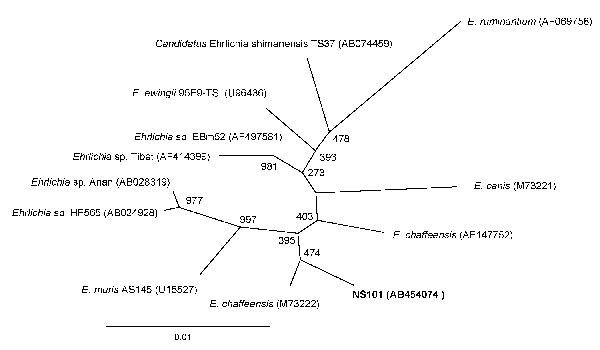Volume 15, Number 12—December 2009
Dispatch
Ehrlichia chaffeensis Infection of Sika Deer, Japan
Figure 1

Figure 1. Phylogenetic relationship between Ehrlichia chaffeensis NS101 (in boldface) and other Ehrlichia spp. 16S rRNA gene sequences. GenBank accession numbers are shown in parentheses. Numbers above internal nodes indicate the number of bootstrap replicates of 1,000 that supported the branch. Scale bar indicates percent sequence divergence.
Page created: December 09, 2010
Page updated: December 09, 2010
Page reviewed: December 09, 2010
The conclusions, findings, and opinions expressed by authors contributing to this journal do not necessarily reflect the official position of the U.S. Department of Health and Human Services, the Public Health Service, the Centers for Disease Control and Prevention, or the authors' affiliated institutions. Use of trade names is for identification only and does not imply endorsement by any of the groups named above.